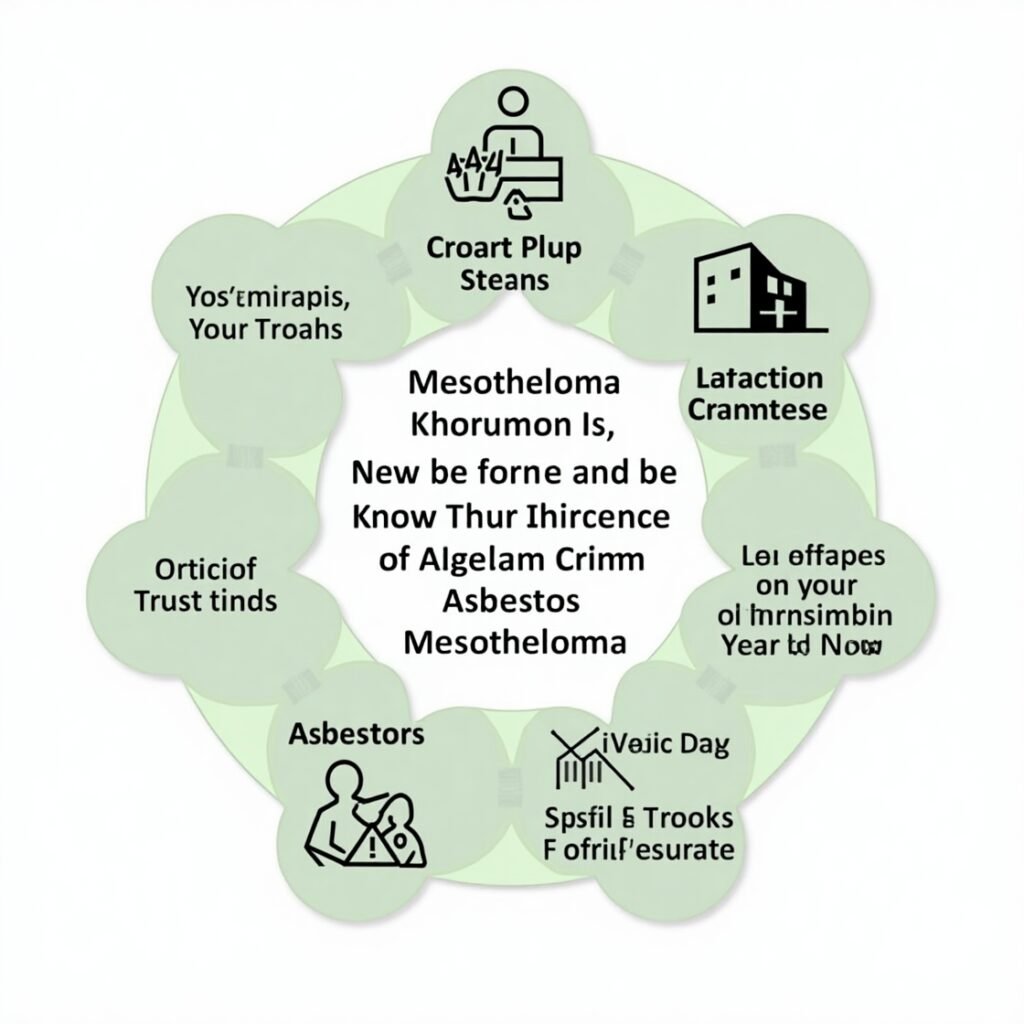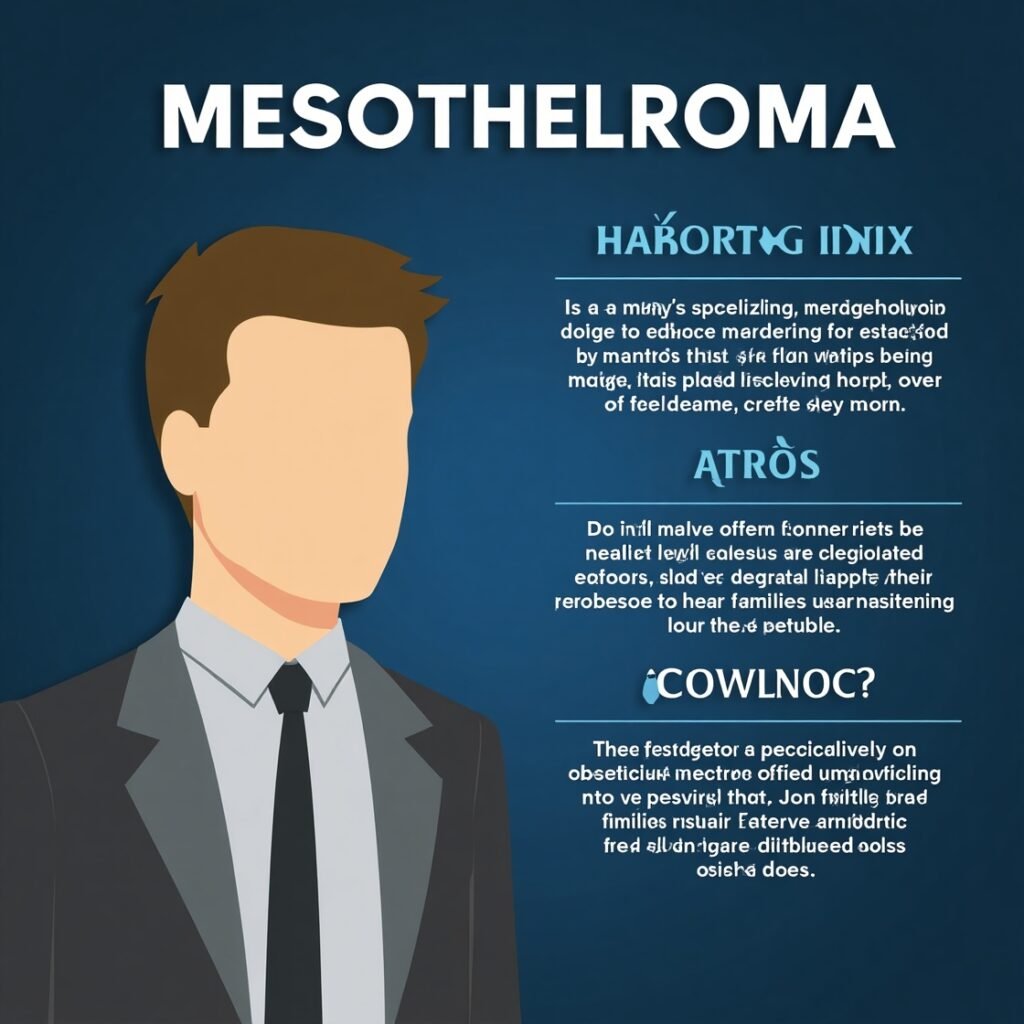
Step 1: Understand Your Eligibility
Before filing a mesothelioma claim, you must determine your eligibility. You may be eligible if:
- You have been diagnosed with mesothelioma or another asbestos-related disease.
- You can prove past exposure to asbestos at work, home, or through a product.
- You are filing on behalf of a deceased loved one who suffered from mesothelioma.
- You were exposed to asbestos through secondary exposure (e.g., from a family member’s work clothes).
Consulting with a mesothelioma attorney can help confirm your eligibility and determine the best legal course.
Step 2: Choose the Right Type of Mesothelioma Claim
There are different types of mesothelioma claims, and choosing the right one depends on your situation:
Personal Injury Claim
- Filed by individuals diagnosed with mesothelioma due to asbestos exposure.
- Seeks compensation for medical bills, lost wages, and pain and suffering.
Wrongful Death Claim
- Filed by surviving family members after the death of a mesothelioma patient.
- Seeks compensation for funeral expenses, loss of income, and emotional distress.
Veterans Benefits Claim
- Filed by military veterans exposed to asbestos during service.
- Claims go through the U.S. Department of Veterans Affairs (VA).
Your attorney will help determine which claim suits your case best.
Step 3: Gather Evidence and Documentation
To build a strong case, you must collect important evidence, including:
- Medical Records: Proof of your mesothelioma diagnosis, treatment history, and related medical expenses.
- Work History: Documents showing where and when you were exposed to asbestos.
- Witness Statements: Testimonies from coworkers or family members who can confirm asbestos exposure.
- Employment Records: Pay stubs, job contracts, or Social Security records proving your past work at an asbestos-related job site.
- Asbestos Product Information: Details of asbestos-containing products you used or were exposed to.
A mesothelioma attorney will help compile and organize these documents.
Step 4: Choose an Experienced Mesothelioma Lawyer
Hiring a specialized mesothelioma attorney increases your chances of winning compensation. Look for a lawyer who:
- Has extensive experience in asbestos litigation.
- Works on a contingency fee basis (you only pay if you win the case).
- Has a proven track record of winning mesothelioma claims.
- Offers free consultations and case evaluations.
- Can handle nationwide cases (as asbestos exposure may have occurred in multiple states).
Your lawyer will guide you through the legal process and ensure you receive the maximum compensation possible.
Step 5: File Your Mesothelioma Claim
Once all evidence is gathered, your attorney will file the claim on your behalf. The filing process depends on the type of claim:
Personal Injury or Wrongful Death Lawsuit:
- The attorney drafts and files the lawsuit in the appropriate court.
- The defendant (asbestos company) is notified and given time to respond.
Asbestos Trust Fund Claim:
- The attorney submits the claim to the appropriate asbestos trust fund.
- The trust reviews the claim and determines compensation based on set criteria.
VA Benefits Claim:
- The attorney files a claim with the VA, detailing asbestos exposure during military service.
- The VA reviews the claim and grants disability compensation if approved.
Step 6: The Legal Process and Negotiations
After filing your claim, the legal process begins. Here’s what to expect:
Discovery Phase
- Both sides exchange evidence and gather witness testimonies.
- Depositions (sworn statements) may be taken from victims, experts, and company representatives.
Settlement Negotiations
- Most mesothelioma cases end in settlements, where the defendant offers a compensation amount.
- Your attorney negotiates to secure the highest possible settlement.
Trial (If Necessary)
- If a fair settlement is not reached, the case goes to trial.
- A judge or jury determines liability and compensation.
- Trials can take months or even years, but they sometimes result in higher payouts.
Step 7: Receiving Compensation
If your claim is successful, you will receive compensation through:
- A lump-sum settlement (agreed amount paid at once).
- Structured payments (installments over time).
- A trial verdict payout (if the case went to trial and you won).
- Asbestos trust fund disbursement (payouts based on trust fund policies).
Compensation can cover:
- Medical expenses (treatments, surgeries, medications, etc.).
- Lost wages and future earning capacity.
- Pain and suffering.
- Funeral costs and wrongful death damages.
- Support for dependents and family members.
Step 8: Consider Additional Financial Support
Aside from a mesothelioma claim, victims may qualify for additional financial support:
- Social Security Disability Insurance (SSDI): Available if mesothelioma prevents you from working.
- Medicare and Medicaid: Help cover medical costs.
- Workers’ Compensation: If asbestos exposure happened at work.
A knowledgeable attorney will explore all financial aid options available to you.
Conclusion
Filing a mesothelioma claim can be overwhelming, but following this step-by-step guide will simplify the process. Hiring an experienced mesothelioma attorney is the most crucial step in ensuring you receive the compensation you deserve.
If you or a loved one has been diagnosed with mesothelioma, act now. Contact a specialized mesothelioma lawyer for a free case evaluation and start your claim today.



